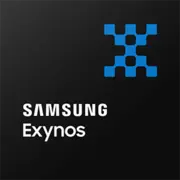Samsung Exynos 990

Samsung Exynos 990: Review of a Processor Still Relevant in 2025
April 2025
Since its release in 2020, the Samsung Exynos 990 has remained one of the key chips for flagship smartphones from the South Korean giant. Despite the emergence of new generations of processors, devices based on the Exynos 990 continue to be in demand in 2025 due to their balance of performance, energy efficiency, and affordability. Let's explore what makes this SoC noteworthy, how it performs in real-world scenarios, and who should pay attention to it.
1. Architecture and Technology Process: Hybrid Power and 7nm
The Exynos 990 is built on a hybrid architecture with eight cores divided into three clusters:
- 2 high-performance Exynos M5 cores with a frequency of up to 2.73 GHz for resource-intensive tasks.
- 2 Cortex-A76 cores (2.5 GHz) for moderate workloads.
- 4 energy-efficient Cortex-A55 cores (2.0 GHz) for background processes and basic applications.
The Mali-G77 MP11 GPU with 11 cores based on the Valhall architecture provides smooth graphics in games and accelerates video rendering. The 7nm (EUV) technology process reduces power consumption, although by 2025 this isn't the latest standard (new chips use 4-5nm). The 1MB L2 cache reduces latency when processing data.
2. Performance: Gaming, Multimedia, and AI
Gaming: The Mali-G77 MP11 handles projects like Genshin Impact or Call of Duty: Mobile on medium settings (1080p, 60 FPS). In 2025, this isn't cutting-edge, but it's sufficient for comfortable gaming. It's important that the smartphone has a cooling system — without it, throttling may begin after 20-30 minutes of play.
Multimedia: Support for 8K/30fps and 4K/120fps decoding is relevant for streaming and editing short videos. The chip also processes HDR10+ and dynamic scenes without lag.
Artificial Intelligence: The integrated dual-core NPU accelerates object recognition in the camera, automatic scene adjustment, and voice assistant functionality. For instance, the "Night Shot" mode is processed 15-20% faster compared to the Exynos 9820.
Power Consumption and Heating: With a TDP of 9W, it maintains moderate levels. With active use, the smartphone lasts 5-6 hours, while in standby it can go up to 2 days. Heating is noticeable during gaming and when recording in 8K, but in everyday tasks, the chip remains cool.
3. Integrated Modules: 5G, Wi-Fi 6, and More
- Exynos 5123 Modem: Supports sub-6GHz 5G (up to 5.1 Gbps) and 4G LTE Cat.24 (up to 3 Gbps). In 2025, this is adequate for most networks, but it does not support mmWave (millimeter waves).
- Wi-Fi 6 and Bluetooth 5.2: Stable connections with Wi-Fi 6 routers (up to 1.2 Gbps) and low power consumption for data transfer via Bluetooth.
- Navigation: GPS, GLONASS, BeiDou, Galileo — positioning accuracy within 1-3 meters.
4. Comparison with Competitors
In 2025, the Exynos 990 is often found in devices priced between $400-600, competing with:
- Snapdragon 870 (2021): Better in gaming (Adreno 650 vs. Mali-G77) but weaker in multitasking (Geekbench Multi: 2672 vs. 2400).
- Apple A14 Bionic (2020): Higher Single-Core scores (1600+ in Geekbench 6) but poorer optimization for Android applications.
- MediaTek Dimensity 8200 (2022): More modern 5G modem and support for Wi-Fi 6E, but similar gaming performance.
The Exynos 990 wins on the grounds of balance and availability in updated smartphones (such as the Samsung Galaxy S21 FE 2023 Edition, which costs about $550 in 2025).
5. Use Scenarios: Who Is It Suitable For?
- Gaming: Suitable for less demanding games or with an external cooler.
- Everyday Tasks: Social media, streaming, office applications — everything runs smoothly.
- Photo and Video: 108 MP cameras, 8K recording, AI filters — the chip is still used in mid-range camera phones like the Galaxy A95 5G.
6. Pros and Cons
Pros:
- Optimized for One UI 6 (Android 15).
- Support for 8K and advanced shooting modes.
- Affordable prices for devices.
Cons:
- No support for Wi-Fi 7 and 5G mmWave.
- Heating during prolonged gaming sessions.
7. Tips for Choosing a Smartphone with Exynos 990
- Cooling: Look for models with vapor chambers or graphite plates (for example, the Galaxy S21 FE).
- RAM: At least 8 GB for multitasking.
- Battery: At least 4500 mAh to compensate for moderate energy efficiency.
Such devices are suitable for those looking for flagship experience for a reasonable price. In 2025, the Exynos 990 is mostly found in Galaxy A series smartphones and re-released flagships.
8. Final Conclusion: Who Should Choose It?
The Exynos 990 in 2025 represents a choice for optimal balance. It is suitable for:
- Users not chasing top performance, but desiring a smooth interface and good camera.
- Budget-conscious gamers — provided they use additional cooling.
- Travelers who value stable 5G and accurate GPS.
The main benefits are proven reliability, support for current communication standards, and the ability to buy a smartphone of previous flagship level for $400-600. If you do not need neural network features on the level of ChatGPT-5 or gaming in 8K, the Exynos 990 remains a worthwhile option.
Basic
2x 2.5 GHz – Cortex-A76
4x 2 GHz – Cortex-A55
GPU Specifications
Connectivity
Memory Specifications
Miscellaneous
Benchmarks
Phones with Exynos 990










Comparison of Devices with Exynos 990
Compared to Other SoC
Share in social media
Or Link To Us
<a href="https://cputronic.com/soc/samsung-exynos-990" target="_blank">Samsung Exynos 990</a>